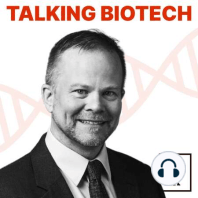68 min listen
Transgene Flow
ratings:
Length:
36 minutes
Released:
Apr 1, 2017
Format:
Podcast episode
Description
This week’s podcast is an important discussion, a cautionary tale of what can happen when genetically-engineered crops are introduced to the environment. Circumstances may lead to release of the transgene into sexually compatible wild plants, leading to its persistence in non-crop species. Dr. Carol Mallory-Smith from Oregon State University has analyzed gene flow in grasses, and was the perfect match for understanding the issue of gene flow from genetically-engineered, roundup-ready, creeping bentgrass in Oregon. Her work has detailed how a genetic engineering plan to aid the consumer resulted in unwanted environmental impacts. Dr . Mallory-Smith’s work demonstrates that transgene escape and gene flow need to be carefully considered when establishing trials and during deregulation of GE crops. Hosted by Dr. Paul Vincelli.Website: http://cropandsoil.oregonstate.edu/content/carol-mallory-smith The paper discussed can be accessed here. Follow Dr. Vincelli on Twitter: @PVincell# COLABRATalking Biotech is brought to you by Colabra – an R&D platform that brings your lab’s world-changing research together in one shared space. Learn more at https://www.colabra.app/# TALKING BIOTECHTwitter: https://twitter.com/talkingbiotechWebsite: https://www.colabra.app/podcasts/talking-biotech/Instagram: https://www.instagram.com/colabrahqThe Talking Biotech podcast is distinct from Dr. Kevin Folta's teaching and research roles at the University of Florida. The views expressed on the show are those of Dr. Folta and his guests, and do not reflect the opinions of the university or Colabra.
Released:
Apr 1, 2017
Format:
Podcast episode
Titles in the series (100)
Stopping Avian Flu Spread; Potato Origins: This episode of Talking Biotech features stories of genetically engineered chickens that do not spread the avian influenza virus. This year over 45 million birds have died or have been euthanized because of illness from the avian flu. Prof. Helen Sang of by Talking Biotech with Dr. Kevin Folta
